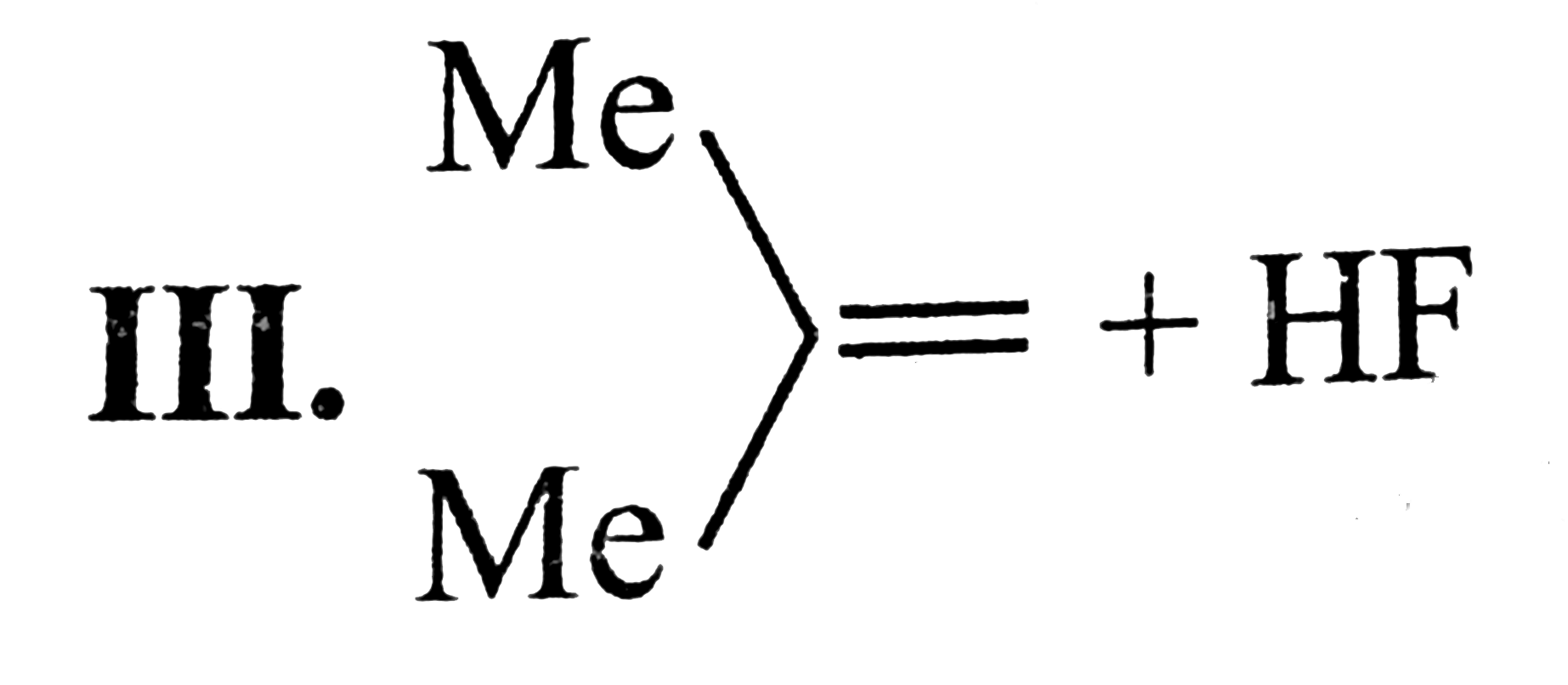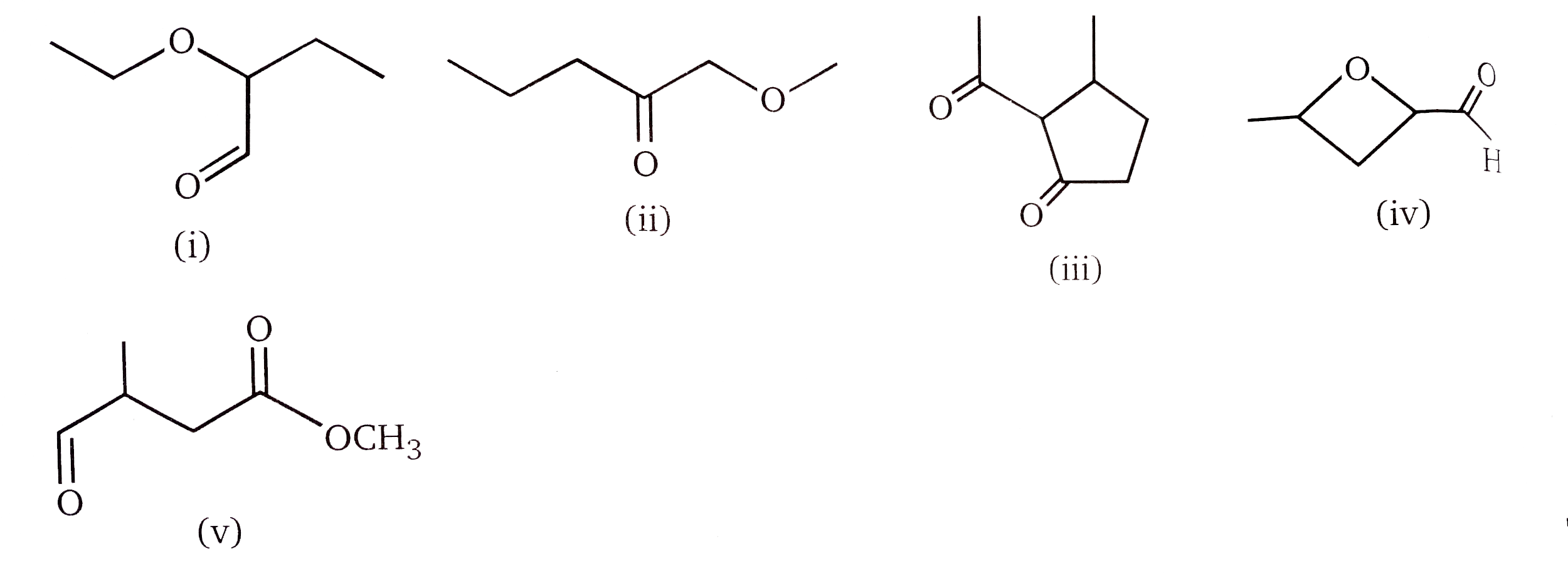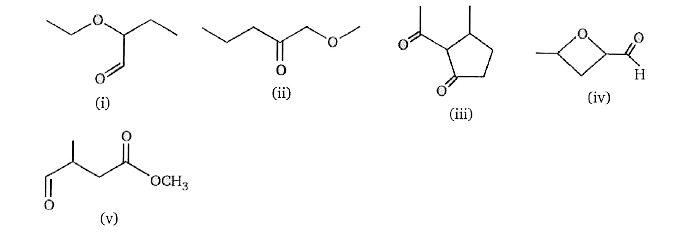Both t−butyl and (−SO3H) groups are used as a blocking group in certain synthesis of organic compounds. Which of the following statements are correct?
t− Butyl group is easily introduced by any of the varitions of the Friedel-Crafts alkylation reacton.
t-Butylgroupcanbe∫orducedbyusing:<br>I.Me_(3)C - Cl + AlCl_(3)<br>II.Me_(3)C - OH + BF_(3)
III. 
t− Butyl group can be easily removed under acidic conditions, beucase of the stability of tert-butyl cations.
t− Butyl group has advantage over a (−SO3H) group as a blocking group, becuase t− butyl group activates the ring to further SE reaction.
The correct Answer is:(a,b,c,d)
(a,b,c,d) All statements are self-explantory.
Topper's Solved these Questions
- AROMATIC COMPOUNDS AND ALKYL AND ARYL HALIDES BOOK - CENGAGE CHEMISTRYCHAPTER - AROMATIC COMPOUNDS AND ALKYL AND ARYL HALIDES EXERCISE - Exercises Multiple Correct Answers Type
12 Videos
- AROMATIC COMPOUNDS AND ALKYL AND ARYL HALIDES BOOK - CENGAGE CHEMISTRYCHAPTER - AROMATIC COMPOUNDS AND ALKYL AND ARYL HALIDES EXERCISE - Exercises Single Correct
161 Videos
- AROMATIC COMPOUNDS AND ALKYL AND ARYL HALIDES BOOK - CENGAGE CHEMISTRYCHAPTER - AROMATIC COMPOUNDS AND ALKYL AND ARYL HALIDES EXERCISE - Exercises Linked Compreshension
58 Videos
- APPENDIX INORGANIC VOLUME 2BOOK - CENGAGE CHEMISTRYCHAPTER - APPENDIX INORGANIC VOLUME 2EXERCISE - Short Answer Type
179 Videos
- BIOMOLECULESBOOK - CENGAGE CHEMISTRYCHAPTER - BIOMOLECULESEXERCISE - Exercises Archives (Analytical And Descriptive)
8 Videos
Similar Questions
Knowledge Check
Which of the following is a 3 methyl butyl group.
ACH3CH2CH2CH2CH2B(CH3CH2)2CH−C(CH3)2CHCH2CH−2D(CH3CH2)2CH−2Many organic compounds contain more than one functional group. Which of the following is both an aldehyde and an ether?
 A(i) onlyB(i) and (iv)C(ii) and (v)D(iii) and (iv)
A(i) onlyB(i) and (iv)C(ii) and (v)D(iii) and (iv)Many organic compounds contain more than one functional group. Which of the following is both an aldehyde and an ether?
 A(i) onlyB(i) and (iv)C(ii) and (v)D(iii) and (iv)
A(i) onlyB(i) and (iv)C(ii) and (v)D(iii) and (iv)
Three of the following four are alike in certain way and so form a group. Which is the one that does not belong to that group?
View SolutionThree of the following four are alike in certain way and so form a group. Which is the one that does not belong to that group?
View SolutionThree of the following four are alike in certain way and so form a group. Which is the one that does not belong to that group?
View SolutionThree of the following four are alike in certain way and so form a group. Which is the one that does not belong to that group?
View SolutionThree of the following four are alike in certain way and so form a group. Which is the one that does not belong to that group?
View Solution
